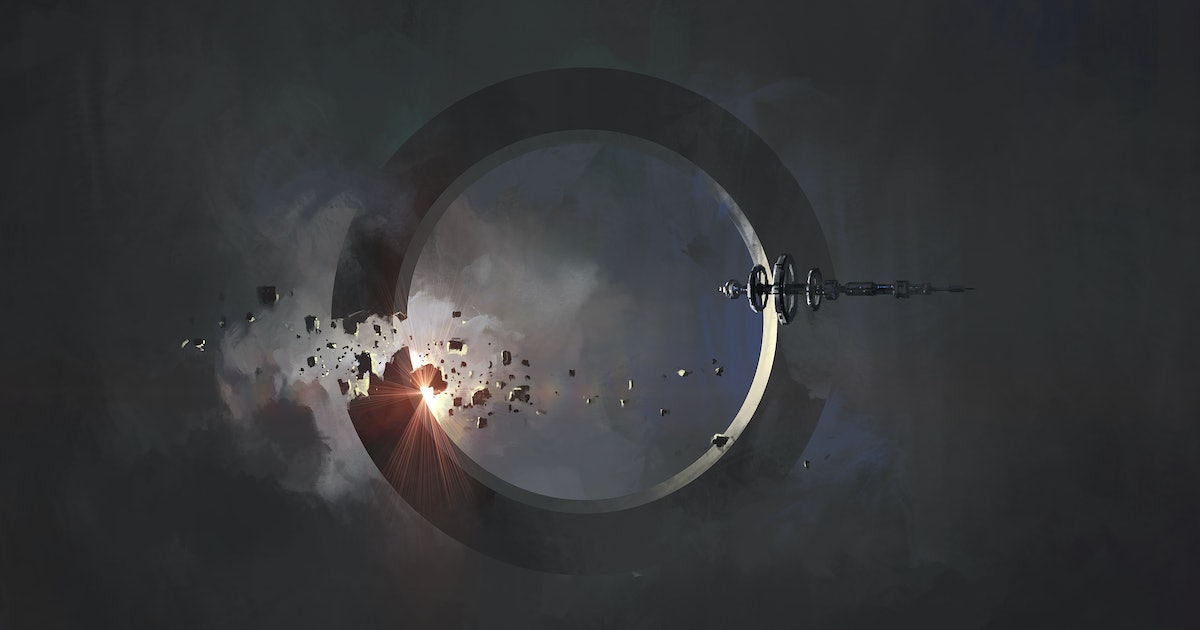
30 Years Ago, The Most Underrated ’90s Sci-Fi Movie Confused Everyone
Time loops and overpowered psychic energy are two hallmarks of science fiction. In 1998, Sphere took both tropes to the limit of reason. The sci-fi movie made both plot devices confusing as hell, and antithetical to storytelling to boot. And yet Sphere isn’t as bad as its reputation suggests, and it isn’t uninteresting to revisit in 2023.
In the 1990s, sci-fi movies based on books by Michael Crichton were all the rage. None were as successful as Jurassic Park, but many, like Congo (1995) and The Lost World (1997), tried valiantly. Sphere is easily the strangest of the bunch, but it’s certainly a better movie than Congo, and easily better than the 2003 Crichton time-travel disaster, Timeline. Sphere is a time travel movie that’s not really about time travel, and also an alien technology movie that’s not about aliens. It’s a mess, but its ideas are worth another look.
Sphere stars a group of scientists — Drs. Goodman (Dustin Hoffman), Halperin (Sharon Stone), Adams (Samuel L. Jackson), and Fielding (Liev Schreiber) — investigating a mysterious spaceship at the bottom of the ocean. At various points, this sphere is thought to be of alien origin or controlled by humans in the distant future. But what’s most confusing is that an “unknown event,” apparently a black hole, sent the ship and the large, mysterious sphere within it into the past. A few time travel paradoxes later, and everyone becomes convinced that this mission will kill them all.
But the time loop twists aren’t really what’s frustrating about Sphere. Instead, borrowing concepts from Solaris, we learn that strange physical manifestations — including aggressive jellyfish and squid — are the result of the sphere bringing Dr. Adams’ fears to life. It’s here where Sphere backfired.
For blockbuster sci-fi twists to work, the “logic” of the twist is less important than the likability. The solutions to Sphere’s time loop problems are a bit tedious, but the sphere spawning dangers based on thoughts is just silly. The sphere is basically Zuul from Ghostbusters, and it destroys the drama. If you think of jellyfish, jellyfish will appear and destroy you! Empty your heads!
On February 13, 1998, Sphere was released to largely shrugging reviews. The biggest complaint from Roger Ebert is that the movie ruined its own premise by answering every question. As he wrote, “The last 20 minutes of the film are a slog through circular explanations and speculations that would have capsized lesser actors.”
But the problem with Sphere isn’t that it explains too much, or that its structure is circular. The plot of the movie isn’t that different from the 1987 book from which it was adapted, and it was generally well-received.
Instead, the problem is mostly structural. The twists in Sphere are neither good nor bad. Its sci-fi concepts weren’t particularly new then or now. The film is better than its reputation because it manages to make all these tropes — from time loops to alien nightmare-making tech — somewhat explicable. There’s a casual realism that pervades Crichton’s novels, and that vibe often finds its way into the film adaptations. Sphere feels realistic when characters are explaining what’s actually going on, but that works better in a book than in a movie.
Because expository scenes are somewhat useful, the film is more ambitious than it seems. In contemporary TV shows, we all enjoy the episodes in which conundrums are finally explained, especially if a season-long mystery has been brewing. Sphere is like if a Lost-style mystery box were crammed into two hours. This isn’t to say the movie is secretly profound, but the reason it works as a novel is the same reason it doesn’t really work as a relatively short film. You’ve barely started to grasp the mysteries before tedious monologues are unspooling them for you.
As of 2020, an HBO Max adaptation of Sphere was greenlit. A series is probably the best hypothetical adaptation of the story. If we had spent more time with these characters, their fears might have mattered more. And if the mystery of the sphere itself were stretched out, it might feel more interesting when it was explained. Sphere tried to make us care about a lot of ideas in little time. It didn’t work, but it should be thought of as a noble failure rather than a cash-grab mess. Everything that we love about sci-fi thrillers is in this movie. They’re just not in the right combination.
Time loops and overpowered psychic energy are two hallmarks of science fiction. In 1998, Sphere took both tropes to the limit of reason. The sci-fi movie made both plot devices confusing as hell, and antithetical to storytelling to boot. And yet Sphere isn’t as bad as its reputation suggests, and it isn’t uninteresting to revisit…
Time loops and overpowered psychic energy are two hallmarks of science fiction. In 1998, Sphere took both tropes to the limit of reason. The sci-fi movie made both plot devices confusing as hell, and antithetical to storytelling to boot. And yet Sphere isn’t as bad as its reputation suggests, and it isn’t uninteresting to revisit…